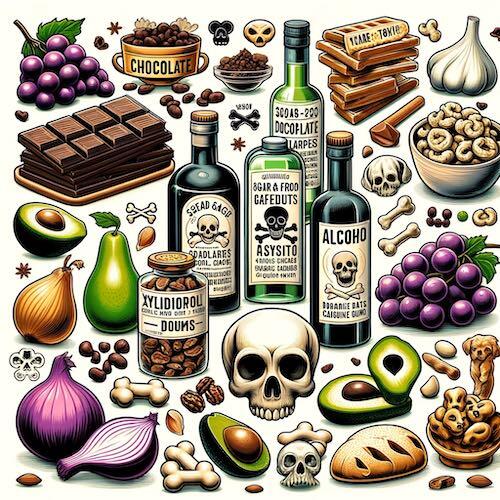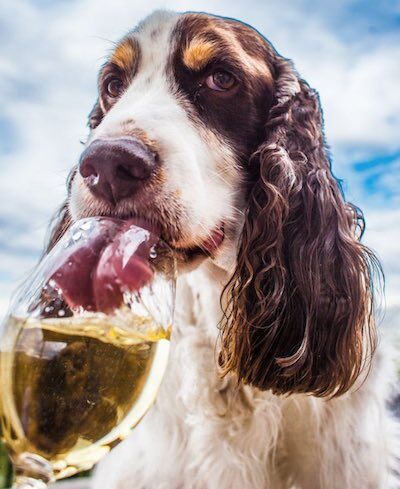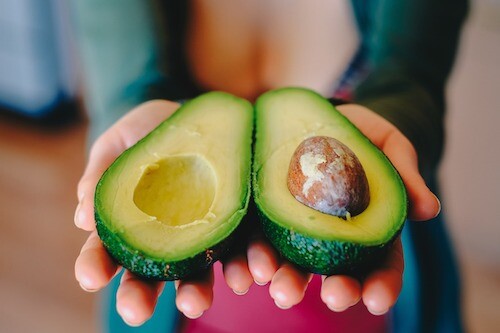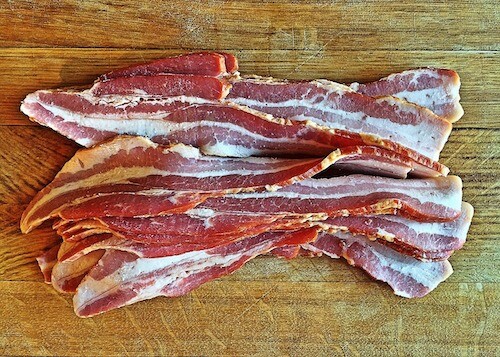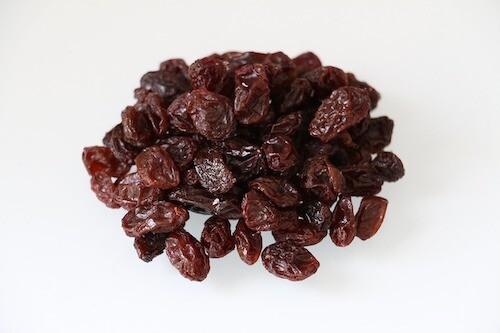Intentionally or unintentionally feeding harmful foods to dogs can have serious and sometimes fatal consequences for our beloved four-legged companions. While certain foods that are safe for humans can be toxic to dogs due to their unique metabolism, it is crucial for pet owners to be informed about the specific dietary restrictions and potential dangers associated with certain items.
Read More: Top 10 Worst Rated Dog Food Brands for 2024
This awareness becomes particularly crucial when it comes to sharing meals or treats with dogs, as seemingly harmless human foods may contain ingredients that are highly toxic to them. Responsible pet ownership involves a commitment to understanding canine nutrition and avoiding the temptation to share foods that could pose health risks to dogs, ensuring their well-being and longevity.
Here are the Top 10 Human Foods That Could Poison Your Dog.
Alcohol
Alcohol poses severe health risks to dogs due to their significantly smaller size and physiological differences compared to humans. Dogs lack the necessary enzymes to metabolize alcohol efficiently, making even small amounts potentially toxic.
When ingested, alcohol can lead to a range of detrimental effects, including central nervous system depression, vomiting, diarrhea, difficulty breathing, and in severe cases, it may even result in coma or death.
Additionally, alcohol can cause a dangerous drop in blood sugar levels in dogs, leading to seizures and other life-threatening complications. Pet owners should be aware that certain foods, such as desserts or dishes cooked with alcohol, may also pose a risk if consumed by their canine companions.
The impact of alcohol on a dog’s liver and kidneys is another significant concern. These organs are vital for detoxification and waste elimination in both humans and dogs, but the canine liver is less equipped to handle the breakdown of alcohol. Chronic exposure to even small amounts of alcohol over time can lead to liver disease and other organ damage in dogs.
Given the serious consequences of alcohol ingestion in dogs, responsible pet ownership involves keeping all alcoholic beverages and products containing alcohol out of their reach and being cautious about the ingredients in food items shared with them. In the interest of their well-being, it is crucial for pet owners to be informed about the potential dangers of alcohol and to prioritize the safety of their canine companions.
Avocados
Avocados contain a substance called persin, which can be harmful to dogs and other animals. While the levels of persin in the fleshy part of the avocado fruit are generally considered low and not likely to cause significant harm to dogs, other parts of the avocado plant, such as the pit and skin, contain higher concentrations of this toxin.
Ingesting these parts can lead to gastrointestinal issues, including vomiting and diarrhea, as well as potential obstruction hazards if the dog tries to consume the large, tough pit. Furthermore, avocados are high in fat, which, when consumed in excessive amounts, can cause pancreatitis in dogs, a serious and painful inflammation of the pancreas.
Thus, while small amounts of ripe avocado flesh may not pose an immediate threat to all dogs, it is advisable for pet owners to exercise caution and avoid allowing their dogs access to any part of the avocado plant.
In addition to the risks associated with persin and high-fat content, avocado pits present a choking hazard and can cause intestinal blockages, requiring surgical intervention. The combination of potential toxins and the physical dangers of the pit make avocados a food item that should be kept out of reach of dogs.
Pet owners should be vigilant about not only avoiding feeding avocados intentionally but also ensuring that their dogs cannot access discarded avocado parts or pits, which may be enticing but pose a significant risk to their health and well-being.
Garlic and Onions
Garlic and onion are two of the most common ingredients found in many pet foods, but they can be toxic for dogs. Both garlic and onions contain thiosulfate, which can damage a dog’s red blood cells when consumed in large quantities.
This can lead to anemia, difficulty breathing, vomiting, diarrhea, weakness and other serious health issues.
In addition to potentially causing anemia or other illnesses if consumed in large amounts over time, garlic and onion may also cause gastrointestinal irritation when eaten even in small amounts. Therefore it is best to avoid feeding your dog any food that contains either garlic or onion in their kibble.
Mushrooms
Wild mushrooms, despite their seemingly innocent appearance, can be highly toxic to dogs, and ingestion can lead to severe health complications. The variety of mushrooms found in the wild is vast, and while some are harmless, others contain toxins that can cause a range of symptoms, including vomiting, diarrhea, abdominal pain, lethargy, and in severe cases, organ failure or death.
The difficulty lies in differentiating between toxic and non-toxic mushrooms, as their appearances can be quite similar. Even experienced foragers may struggle to accurately identify every mushroom species, making it a risky endeavor to allow dogs to explore and potentially ingest wild mushrooms during outdoor activities. As a precautionary measure, pet owners are advised to keep dogs away from areas where mushrooms grow abundantly and promptly contact a veterinarian if ingestion is suspected.
Even some mushrooms commonly used in cooking, such as certain types of button mushrooms, can be problematic for dogs. While not as toxic as some wild varieties, ingestion can still lead to gastrointestinal upset. Furthermore, the introduction of unfamiliar mushrooms into a dog’s diet may cause an adverse reaction or allergies.
As with any potential hazards, responsible pet ownership involves being cautious about the environment in which dogs are allowed to roam and ensuring that they do not have access to potentially toxic mushrooms. Immediate veterinary attention is crucial if a dog is suspected of ingesting any mushrooms, as the severity of the reaction can vary depending on the specific type of mushroom and the individual dog’s sensitivity.
Bacon
Bacon is a tasty treat that many people enjoy as part of their diet, but it can be dangerous for certain animals, especially dogs. Eating bacon can make dogs sick and even cause serious health problems if they eat too much. It’s important to understand why eating bacon isn’t safe for your canine companion so you know how to keep them healthy and happy.
1) Bacon contains high amounts of fat and sodium which can both lead to digestive issues in dogs if consumed in large quantities. This could result in vomiting, diarrhea or other gastrointestinal distress symptoms like abdominal pain or bloating. In some cases, these symptoms may require medical attention depending on severity.
2) The high levels of salt found in bacon can also put extra strain on the kidneys and liver as they work to filter out the toxins from the body. If left unchecked this could lead to more severe conditions such as pancreatitis or kidney failure over time due to long-term exposure from regularly consuming salty foods like bacon.
3) Dogs are also prone to developing food allergies, particularly when exposed repeatedly over time with specific ingredients such as pork products like bacon strips or sausage links which contain nitrates used as preservatives during processing stages
Cooked Bones
While the image of a dog gnawing on a bone may seem like a quintessential canine behavior, certain types of bones can pose serious health risks to dogs. Cooked bones, in particular, are a common hazard. The cooking process makes bones more brittle, and when dogs chew on them, the bones can splinter into sharp fragments that may cause internal injuries, including punctures or tears in the digestive tract.
These sharp bone fragments can lead to conditions like intestinal blockages, which are not only painful but also necessitate emergency veterinary intervention. Raw bones also carry risks, as they may be contaminated with harmful bacteria like Salmonella or E. coli, posing a threat to both the dog and the humans in the household. Additionally, dogs can break their teeth while chewing on hard bones, leading to dental issues that may require veterinary attention.
Beyond the physical risks, feeding bones to dogs can also contribute to dietary imbalances. Consuming large amounts of bones can lead to an imbalance in the calcium-to-phosphorus ratio, potentially causing skeletal issues in growing puppies or disrupting the delicate mineral balance in adult dogs.
To ensure the safety of their canine companions, pet owners should exercise caution and choose appropriate chew toys or treats designed to promote dental health without the risks associated with bones. Consulting with a veterinarian about safe alternatives for satisfying a dog’s natural chewing instincts is crucial for responsible pet ownership.
Caffeine
Caffeine, found in various foods and beverages like coffee, tea, energy drinks, and certain medications, is toxic to dogs and can lead to severe health complications. Dogs metabolize caffeine much more slowly than humans, making them more susceptible to its stimulant effects.
Ingesting even small amounts of caffeine can result in symptoms such as restlessness, rapid breathing, increased heart rate, tremors, and in severe cases, caffeine toxicity can progress to seizures or collapse. The severity of the reaction depends on the size of the dog, the amount of caffeine ingested, and individual sensitivity. Since there is no specific antidote for caffeine poisoning, prompt veterinary attention is crucial to manage symptoms and increase the chances of a positive outcome.
Caffeine toxicity can also lead to more serious conditions such as elevated blood pressure and heart palpitations in dogs, which may have long-term implications on their cardiovascular health.
Pet owners need to be vigilant about keeping all sources of caffeine out of reach of their dogs and should never intentionally give them foods or drinks containing caffeine. This includes being cautious about leaving coffee cups, tea bags, or caffeinated beverages unattended, as dogs may be curious and consume them.
Candy (Xylitol)
Candy, particularly those containing ingredients like chocolate, xylitol, and certain artificial sweeteners, can be highly toxic to dogs and pose significant health risks. Chocolate contains theobromine, a stimulant that dogs metabolize much more slowly than humans.
Ingesting chocolate can lead to symptoms ranging from mild, such as vomiting and diarrhea, to severe, including increased heart rate, seizures, and, in extreme cases, death. Dark chocolate and baking chocolate have higher theobromine concentrations, making them even more hazardous to dogs.
Xylitol, a sugar substitute commonly found in sugar-free candies and gum, is another major concern. In dogs, xylitol triggers a rapid release of insulin, causing a dangerous drop in blood sugar levels known as hypoglycemia. This condition can lead to seizures, loss of coordination, and, if not promptly treated, can be fatal.
Beyond the immediate risks associated with chocolate and xylitol, the high sugar content in many candies can contribute to obesity and dental problems in dogs. Excessive sugar intake can lead to weight gain, putting strain on a dog’s joints and organs. Moreover, the accumulation of sugar on their teeth can lead to tooth decay and gum disease.
Pet owners should exercise caution and keep all candy, especially those containing harmful ingredients, well out of reach of their dogs to prevent accidental ingestion and protect their furry friends from these potentially life-threatening consequences.
Chocolate (Theobromine)
Chocolate is highly toxic to dogs due to the presence of theobromine, a stimulant that affects the central nervous system and cardiovascular system. Dogs metabolize theobromine more slowly than humans, making it difficult for them to eliminate the substance from their bodies efficiently.
Ingesting even small amounts of chocolate can lead to a range of symptoms, including vomiting, diarrhea, increased heart rate, restlessness, and elevated blood pressure. In more severe cases, dogs may experience muscle tremors, seizures, and, in extreme instances, chocolate toxicity can be fatal.
Theobromine levels vary in different types of chocolate, with dark chocolate and baking chocolate containing higher concentrations, thereby posing a greater risk to dogs. Pet owners should be particularly vigilant to keep all chocolate products out of their dog’s reach and avoid sharing any chocolate treats, no matter how tempting it may be for our furry companions.
It’s important for dog owners to recognize the signs of chocolate poisoning and seek immediate veterinary attention if their dog has ingested chocolate. The severity of the symptoms depends on the type and amount of chocolate consumed, as well as the size and breed of the dog. Timely intervention is crucial to prevent complications and increase the chances of a positive outcome. Responsible pet ownership involves educating oneself about the potential dangers of chocolate and ensuring a chocolate-free environment for dogs to safeguard their well-being.
Raisins and Grapes
Raisins and grapes can be unexpectedly toxic to dogs, causing severe health issues even in relatively small quantities. The exact substance in these fruits that leads to toxicity is still not fully understood, but ingestion can result in acute kidney failure in many dogs.
The toxic effects can manifest within hours of consumption and may include symptoms such as vomiting, diarrhea, lethargy, and a loss of appetite. As little as a handful of raisins or grapes can be enough to trigger toxic reactions in some dogs, while others may show adverse effects even with smaller amounts.
The variability in individual sensitivity makes it challenging for pet owners to gauge the risk, necessitating a strict avoidance of raisins and grapes in any form, including dried or cooked, to prevent potential harm to their canine companions.
The consequences of raisin or grape ingestion in dogs can be severe and life-threatening, with kidney failure being a primary concern. The toxic mechanism is not well understood, and there is no known safe amount for dogs to consume. Some dogs may react differently to raisins or grapes, and there isn’t a clear correlation between the amount ingested and the severity of symptoms.
Because of these uncertainties, any suspicion of raisin or grape ingestion should prompt an immediate visit to the veterinarian for evaluation and appropriate treatment. Responsible pet ownership involves being aware of the potential dangers posed by seemingly harmless foods and taking proactive measures to ensure a safe environment for dogs.

